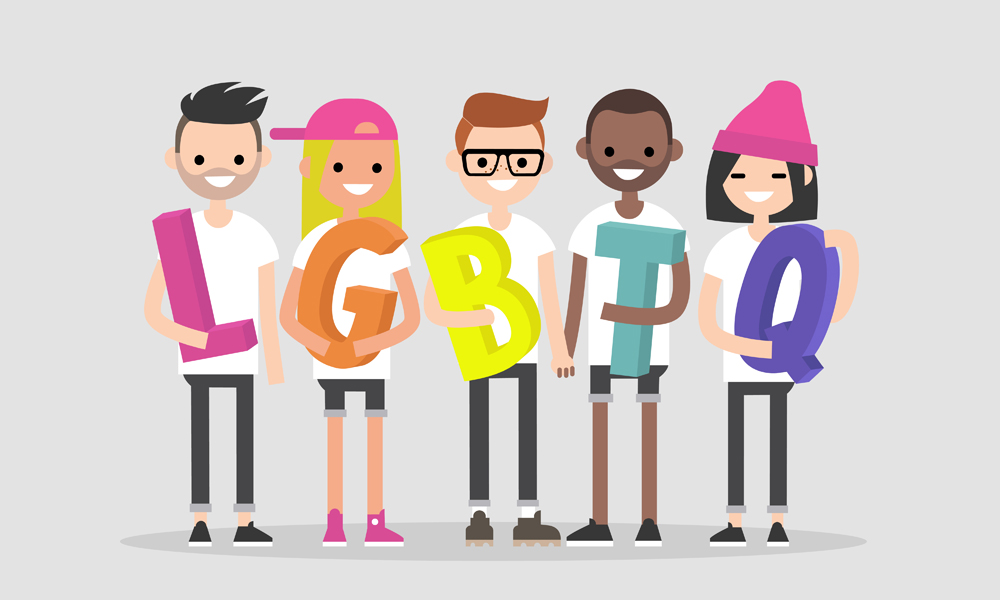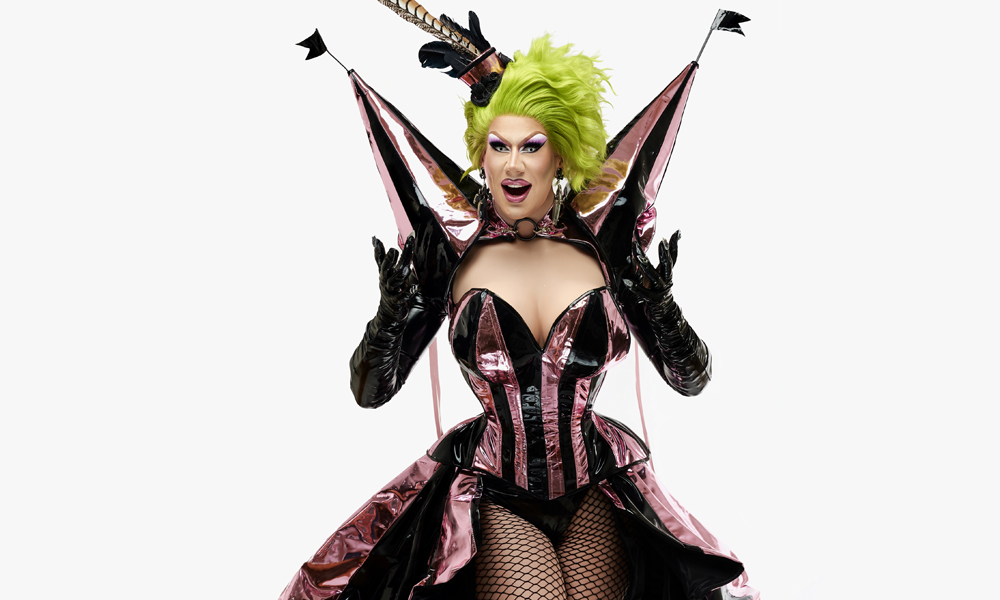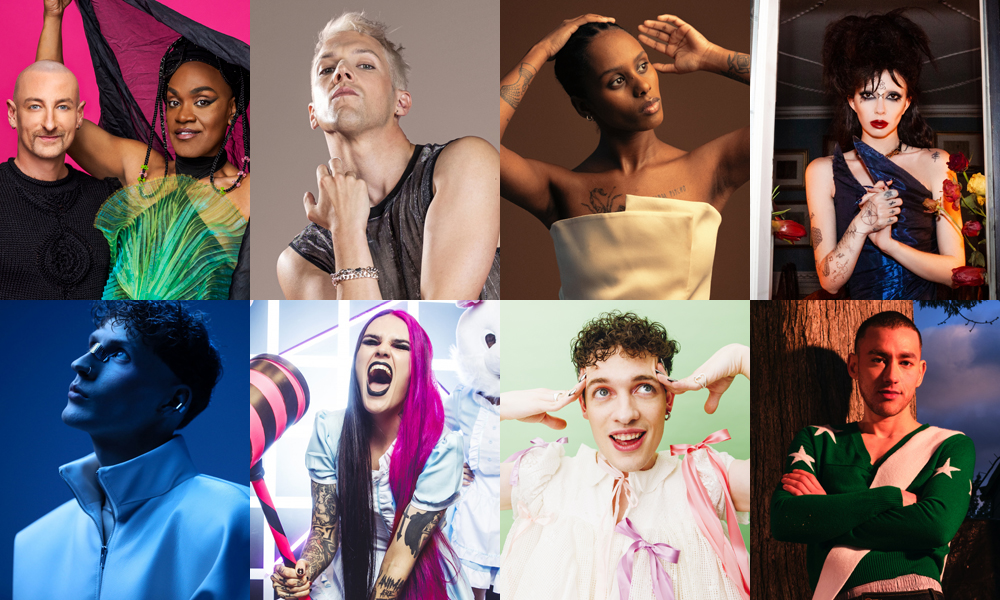Whose word is it, anyway?…
When Tim McCaskell was growing up, the worst thing you could be labelled was a sissy. “If someone called you that, you either had to fight the guy or your life was over,” he says with a laugh. When he entered high school in the mid-1960s, he noticed a different word being used by the older kids: queer. “Even if you didn’t know what it meant, you knew it was a bad thing. It meant you weren’t normal,” explains the activist and author of the books Queer Progress and Race to Equity.
McCaskell, who was involved in publishing one of Canada’s first significant gay publications, The Body Politic, throughout the 1970s and 1980s, says that one of the first times he saw people using ‘queer’ as a positive identifier for gender and sexual minorities was in the 1990s, when he was working on an anti-homophobia initiative for the Toronto Board of Education. A student from Jarvis Collegiate Institute was starting a publication for gay youth and wanted to call it Queer Voices. McCaskell says that when he took the student’s content to the printing office, they refused to print it. “They said it was a hateful word.”
This took place during a time that was a turning point for the use of the term queer. Since the 19th century, it had indicated strangeness and oddity, but in the early 1900s, it started being used in a derisive way towards homosexual men. By the early 1990s, while some were continuing to use the word as a slur, academics in the burgeoning discipline of Queer Theory, like Eve Sedgwick, had begun to examine concepts like heteronormativity and the idea that human sexuality was more dynamic than previously thought. An activist group formed by members of the New York AIDS collective ACT UP dubbed themselves Queer Nation, bringing the world the iconic liberation chant, “We’re here! We’re queer! Get used to it!”
McCaskell recalls more community members taking up the term in a positive way throughout the 1990s, despite the fact that a lot of people still saw ‘queer’ as broadly negative. As he explains: “We took this weapon so it couldn’t be used against us anymore.” This transformation of the term continued through the 2000s, including during the five-season run of Bravo’s makeover show Queer Eye for the Straight Guy (rebooted simply as Queer Eye by Netflix in 2018). For better or for worse, queer – a term intended to embody difference and all that was not normative – had gone mainstream.
Today, for the first time in history, we have multiple generations of our gender and sexual minorities who are living, working and interacting with each other. Each generation has been privy to various uses of the word queer. Sophia Akhavan-Zanjani is the coordinator of RyePRIDE, which functions as part of the Ryerson Students’ Union and bills itself as “the queer voice of Ryerson University” in Toronto. Akhavan-Zanjani says RyePRIDE uses the word to describe the broader community that is served by the group’s programming but doesn’t expect every member of that community to take it on as an identity. She identifies as a member of the community served by RyePRIDE but doesn’t describe herself as queer because of the word’s violent history. “I don’t want to use the word ‘divisive,’ but either you use that word or you don’t,” she says, adding that because of differing views on the term, “unless someone explicitly told me that they used it to describe themselves, I wouldn’t label them that way.” Akhavan-Zanjani explains that a lot of people who participate in RyePRIDE programs say they are members of the “Queer community” because they prefer not to have to explain every component of their sexual orientation and gender identity all the time, saying it simply “signifies to people that you’re not cis or not straight” without going into too much detail.
Planned Parenthood of Newfoundland and Labrador offers several programs for gender and sexual minorities including Camp Eclipse, which the organization describes as “a four-day leadership retreat for LGBTQ+ youth and their allies.” Nikki Baldwin was a leading member and coordinator of the program before she became executive director of Planned Parenthood of Newfoundland and Labrador last year. It was by working with Camp Eclipse participants that she learned of differing perspectives on the use of the word queer. Some youth involved with Camp Eclipse, as well as adult members of the community, were made uncomfortable by the word. “We have two distinct groups,” she says. “Those from St. John’s have positive interactions with the word queer, while people from rural areas have a negative association,” Baldwin says her organization uses queer in their umbrella term for the community (LGBTQ+), but admits that it’s a tough line to walk even when it offends some people. “If people adopt it for their own personal identity,” she explains, “you have to let them use it.”
Abigail Moser is an undergraduate student at the University of Toronto, pursuing a double major in gender studies and book and media studies and a minor in English, who embraces the term queer. “I find its vagueness comforting,” she says. Born in the 1990s, Moser didn’t grow up with anything but positive associations with the term. “It feels inclusive and welcoming, rather than having to be specific about your identity,” she says. However, she acknowledges that this is based on her personal relationship with the term, and remains conscious of the term’s origins. “If someone tells you not to use it to describe them, of course, that’s fair.”
Moser’s attitudes around the world are familiar to Richard Fung, a Toronto artist and writer who teaches an LGBTQ studio course at OCAD University. He has noticed a marked difference over the past several years in how cisgender women in his classes have identified their sexual orientation. “None has identified as a lesbian,” he says, explaining that “they prefer the term queer.” He says many of these students have expressed disinterest in the specificity of the term ‘lesbian’ and embrace the fluid nature of queer, which because of its history can indicate one’s politics as much as one’s sexuality. “Terms go in and out of favour, and how we view them shifts across culture and with age,” explains Fung, who first encountered the word when he moved from Trinidad and Tobago to Ireland, and then to Toronto in the 1970s. He has seen the evolution of its use among gender and sexual minorities ever since. “Queer can be a helpful shorthand,” he says, but cautions that using it as a term for all identities included in ever-expanding acronyms like LGBTQ, LGBTQ2+ or LGBTTIQQ2SA has its pitfalls: like collapsing issues of gender and transness with those of sexuality and other facets of one’s identity. “Two-spirit, the 2S in the longer acronym, is a pan-Indigenous term which gestures towards the range of sexuality and gender constructions among Indigenous nations before 1492,” is just one example, he explains. To him, it’s “another reason why it’s not always adequate to use queer as the catchall term.”
Fung, McCaskell and other long-time activists have the benefit of having seen things like our community’s shared language evolve over a number of decades, watching terms like ‘gay’ and ‘lesbian’ transform into acronyms that have become progressively more inclusive of a broadly diverse community that contains nearly infinite identities. “The most important thing to remember is that words and categories are shifting all the time,” says McCaskell, expressing hope that nobody loses sight of the fact that our rights and freedoms are what matter the most. “That’s not to say that language is not important, but if people fetishize and become completely obsessed by it, then it becomes counterproductive.” Fung agrees that language is important, but that it must remain agile to fit the changing needs of a community that continues to define itself, saying, “My sense is that this state of flux is here to stay.”
—
COLIN DRUHAN is the executive director of Pride at Work Canada, a not-for-profit organization that empowers employees to foster workplace cultures that recognize LGBT employees. For more information, visit prideatwork.ca.

Our Complicated Relationship With The Term Queer
Related Articles
Jimbo’s Drag Circus World Tour Is Coming To Your Town!
The Canada’s Drag Race alum and most recent All Stars winner talks to IN about her current tour, which characters she’s most excited to play on stage, and what city she’s most excited to perform in when she brings her tour across Canada
Take Note
Perfume notes that bridge the gender divide
Listen To The 8 LGBTQ+ Acts Competing In Eurovision 2024
From a Drag Race judge to a “rebel witch” to Years & Years former frontman, eight openly queer singers are heading to Malmö, Sweden to compete in the world’s largest music event. Which song will you be cheering for?





Comments
1 Comment